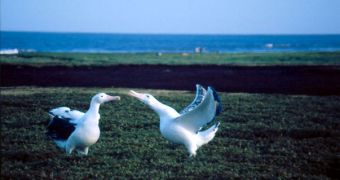Over the years, sleep research has provided scientists with a wealth of knowledge on the processes that go on inside our brains as we rest. One of the most important things going on during sleep is the fact that memories get consolidated, as do the important experiences we underwent the previous day. Now, it would appear that sleep performs roughly the same function in many species, including birds. A new investigation has established that the memories starlings form during the day are consolidated during sleep, a discovery that could lead to new and exciting research into how the brain learns and preserves memories and experiences, ScienceDaily reports.
“We really wanted to behaviorally show that these types of sleep-dependent memory benefits are occurring in animals. What was remarkable was that the pattern here looks very similar to what we see in humans. There wasn't anything that was terribly different,” the lead author of the new study, Timothy Brawn, a University of Chicago graduate student, says. A paper detailing the findings appears in the January 13 issue of the Journal of Neuroscience.
All living things, animals and plants included, have a very important thing in common, namely the ability to learn from past experiences. This allows them to avoid making the same mistakes over and over again, and considerably boosts their ability to adapt to their environment, evolve, and therefore endure to pass on their genes.
Exactly how the learning process takes place is still a matter of debate and study in the international scientific community, and the new study may help shed a little bit of light on these mostly theoretical discussions. Specifically for birds, sleep has been proven in previous studies to play an important part in consolidating vocal learning, as in the songs birds sing to attract mates, interact with each other, and signal danger.
“The result suggests [sleep-dependent consolidation of learning] is a very broad, general phenomenon that might be shared across a great many vertebrates. It was quite important to show that and it now opens the possibility for mechanistic and behavioral experiments in animals that are difficult to do in humans,” UC Professor of Organismal Biology, Psychology and Neuroscience Daniel Margoliash says.
“There are very few paradigms of research that have unfolded at the same time in parallel between using humans and animal subjects. These scientific advances suggest that we may be able to use birds to study the role of sleep in vocal learning and language development in humans,” the UC Professor and Chair of Psychology, Howard Nusbaum, concludes.

 14 DAY TRIAL //
14 DAY TRIAL //